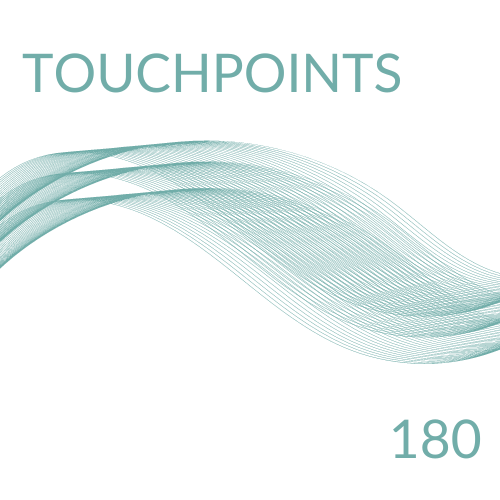
David looked in the mirror. He looked tired, sad, empty. He’d tried so hard to find solutions. For as long as he could remember. And suicidal thoughts … they’d always been there. Since he was four, life had seemed so empty and futile. Packed with disillusionment upon disillusionment … and disappointment. He could remember when he was only 6 years old, wondering if he drank a bottle of window cleaner, if the pain would end. He’d lived his life having too many days when he just couldn’t get out of bed, or face even routine tasks. Now he was 45, and he felt like he’d tried it all. Two decades of psychotherapy that better equipped him for living a circumspect life, but never relieved the pain and emptiness. He was losing hope after a long life of debilitating depression, because nothing seemed to help.
A Lifetime of Depression
In his 30’s, he’d worked with psychiatrists for years, trying SSRIs, SNRIs, and testosterone replacement. Each effort gave some mild relief, but never seemed to touch the core problem.

Then, in his 40’s, he worked with brilliant professionals in prominent university hospitals, did the whole thing, looked for help in every good place. But only recently did me meet someone who worked at the front lines of innovation.
Her name was Bea, and she had a deep knowledge of nutrition at the cell level. They met for lunch, and she talked about her work with mitochondria, the proverbial “power house” in the cell. The more she talked, the more glued he became to her every word.
She talked about her research partners, and what they were learning about mental health. She explained how the mitochondria in each cell are the source of mental and physical energy. That if they aren’t producing enough energy, then the person lacks the mental, emotional, and physical energy he needs to function.

That concept hijacked David’s attention. He’d been held hostage by a long life of debilitating depression. He’d spent his entire life trying to find ways to simply function consistently. This was an explanation that had never occurred to him.
So he opened up to Bea about his story. He’d had phenomenal educational and entrepreneurial opportunities, but fluctuated between times of elite inventive accomplishments and periods when he couldn’t function at all. His self-confidence was badly damaged as a result. But in sparkling times, he could create amazing things.

What worried him the most was that his wife had just given birth to their son. He had become obsessed with finding solutions that would empower him to be present and engaged with his baby boy. To be a reliable part of his life.
As things were, he had periods of time when he had to pull into himself, close the blinds, and try to recover. He didn’t want that to continue through his son’s life. He just had to find a way to get rid of his lifelong depression. He didn’t want it be lifelong throughout his son’s new life. Or throughout the rest of his wife’s life.
As Bea described the needs of the cells, and how they functioned, he was introduced to a whole new paradigm. Could this have anything to do with his condition?
Ketogenic Psychiatry in Connecticut
Bea told him about a psychiatrist in Connecticut whose practice provides metabolic psychiatry, ketogenic psychiatry really, for people who’d suffered like he had. It was only an hour and a half away.
David made an appointment, and drove to that office 3 days later. Was it possible he would learn about a true solution?

He’d been so hampered all this life. During the drive he thought about how different his life could have been if he’d found out about this 40 years ago. His entire long life of depression could have been completely different.
All those years of ups and downs, times he could excel and times he was all but disabled. What would it have been like to feel good and functional all that time?

But then, how long had they known about this? How new was it?
And then another thought occurred to him. If he hadn’t suffered so severely, would he have dedicated his life to finding solutions for himself, and in turn, for others who suffered like he had?
It was staggering to consider.
The doctor was clearly astute, informed, and compassionate. She explained metabolic psychiatry, and their Touchpoints 180™ program. They talked about how they use food to transform the way he was feeling — food he actually liked. Real food. Good food. Not shakes, powders, or pills. How it’s personalized and adapted by their registered dietitian, using low carbohydrate, moderate protein, and how its high in healthy fats that can actually turn on an energy cascade, and shrink his body fat. And she suggested he read Brain Energy by Christopher Palmer, M.D., explaining that it would help him understand why generating ketones for his brain cells could be so restorative.

So David went to work on removing seed oils from the pantry and headed to the grocery store for foods that he would begin to eat, with cool ratios that would work for his metabolism, and not against it. He didn’t have to figure anything out–they’d done all that for him! And had a long talk with his wife about how he was going to use food as medicine — and his hope that it would work.
By the end of the first day, David came face to face with a culprit that had been holding him back all his life. Sugar. Actually, sugar addiction. Actually…. it was bigger than that. It was really like processed food addiction. Was that even a thing?
Sugar Addiction had Fed His Long Life of Depression

He hadn’t considered how hard it would be to drop his carbohydrates so drastically. He found himself craving cookies, donuts, and ice cream. Arrrggghhhh! He’d always craved candy bars, or cookies and milk, but never thought of it as an addiction per se. But, he also found that if he ate something high in fat, like avocados, the craving would subside. So that was good to know.
By the end of the second day, his mind seemed to be clearing. What?? He hadn’t realized how much brain fog he had until it began to go away.
After 3 days, he was feeling so much better. He was amazed at how he could look at foods he would have devoured before, like a package of cookies, and he no longer felt tempted. His mind was clear, his emotions seemed more stable.

His experience with their metabolic psychiatry program, Touchpoints 180TM got him outside in fresh air, enjoying nature walks, and interacting with others who were on the same journey — with a doctor and a dietitian who actually walked with their patients! He felt like he was part of a community. And not so alone.
In the next few weeks, David had more physical energy, and mental energy, as well. HIs creativity soared, as he worked on plans for his business venture. His long life of debilitating depression seemed like it was his past life. It didn’t feel like it was going to be his future any more.
And he couldn’t help but notice something else… he was stable. His emotions weren’t fluctuating. He wasn’t falling into the ditch emotionally. There were no days when he couldn’t get out of bed. This was amazing!
Every day, in between work obligations, he spent with his baby boy, playing, reading stories, entertaining him during tummy time. His wife told him the transformation in him floored her! And that she was thrilled they were both living a low carb lifestyle where ketones were front and center.

Getting Better and Better
After six months had passed, he began to realize this was going to last. Never in his wildest dreams could he have imagined life being like this. The anxiety that had made it hard for him to leave the house at times seemed to lose their hold.
David knew he was going to keep feeding his brain with ketones that his body could produce for the rest of his life. (People have done this for decades–he just never knew that!) When they said their treatment was a Ketogenic Metabolic Therapy, that was for sure! He felt better than he ever had with therapy. He had never lived so well. He’d actually never felt so well, and so healthy. He’d never known this capacity for accomplishment, for relationships, for creating…and for being available for his son.
And he knew he didn’t have to ever go back to the misery and suffering of his life up until six months ago. He had such hope for the future.
How About You?

Have you struggled and suffered with depression that has plagued you all your life? Have you searched for answers through every pathway you could find to no avail?
Metabolic psychiatry and Ketogenic psychiatry is providing a path for restoration and remission of a wide variety of psychiatry conditions.
If you’ve suffered like David, and nothing you’ve tried has helped, call us.
Learn about our Touchpoints 180™ program and see what we can do for you.
We’re here to guide you to a happier, healthier life.

To the restoration of your best self,
